Moments in the Life of Charles Dailey
This page revised: 10/26/02
![]() Moments Menu
Moments Menu
![]()
THE PHONE
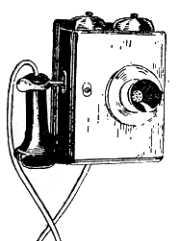 |
Initiating the call was something like "Operator, I want to call 4378." The operator would comply and the other phone would ring. The connection was clear unless it was one of those ultra-expensive long distance calls, then you yelled to be heard. We didn't know it then, but this was an ancient prototype of cell yell.
In those years, it was not even a dream to carry your own phone in your pocket. But cell phones still have the batteries and ours last about a day.
Museum Murmur
What disturbs me now is visiting a museum to see something ancient and instead finding my old toys, furniture and tableware in the display case. And there is our kitchen stove and the washing machine.
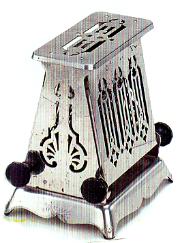 |
One historical item that brings back painful memories is the razor strap. It was not used for shaving -- its purpose was to shape me up. As I recall now, there was just one level of discipline and that was to be avoided at all costs.
Toast
We toasted our Langendorf Bread with a simple electric toaster. Let down one of the doors and the bread flipped over so the other side could be toasted. That was the only thing automatic about it. If you were tardy about the flip, the toast was really toast.
Preacher Control
A very early recollection was when we would go to visit John L. and Bessie Andre in Florin. He was the part-time minister of the very old Methodist Church there.
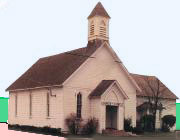 Church in 1880. |
The Andres had lived in Oakland at the time of the 1930 census. When they moved to Florin and how Mother Dailey got acquainted with them is a mystery. During the week, John sold propane stoves and their bottled gas supply for a living. I have memories of visiting at their home often.
He was a Baptist man, but Bessie was an ardent Methodist and kept him in line by her carefully timed "spells" of brief sickness. They lived in the multi-story church parsonage that still stands next door. This is the same church building that became the meeting place of the Florin Road Church of Christ in 1962 and remains so today.
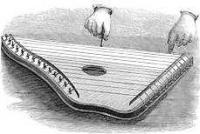 |
John, though of French heritage, played the German zither. He would get it out occasionally and play for guests. The art may be passing from the American scene.
Probing the Pioneer Population
My earliest interest in pioneer life in the west was whetted by our visits to Sutter's Fort in the heart of Sacramento. Later that interest would develop into a full-blown record of the early Stone-Campbell churches in the northwest. Here is the red-roofed fort as it looked in those days.
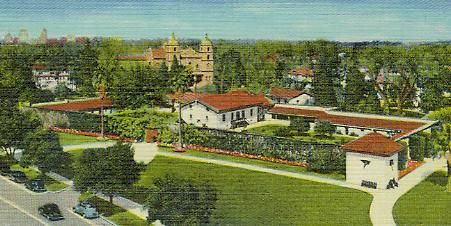 |
A Memorable Example
During these years, I attended Sunday School at the First Christian Church, then at 27th and N, near the fort. The most important person there was "Mrs. Booth," my excellent Sunday School teacher. From the census records, I learned that she was Leland Booth and her husband was English-born Newton Booth. One summer they invited me to their orchard farm east of Sacramento on the Consumes River. There I learned to love apricots because they were fresh off of the trees. The visit was probably a week. Their kindness, and especially their grace, made a serious impact on my life when I was eight or nine.